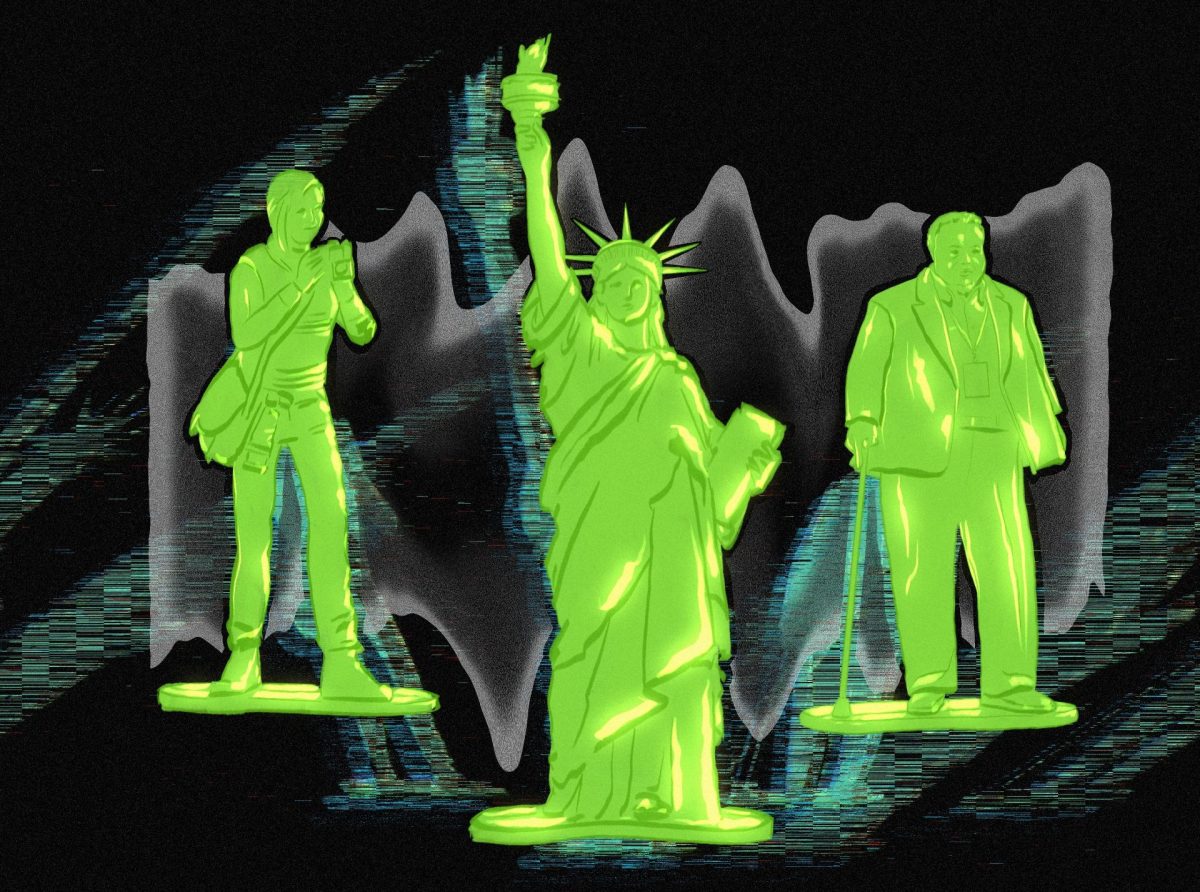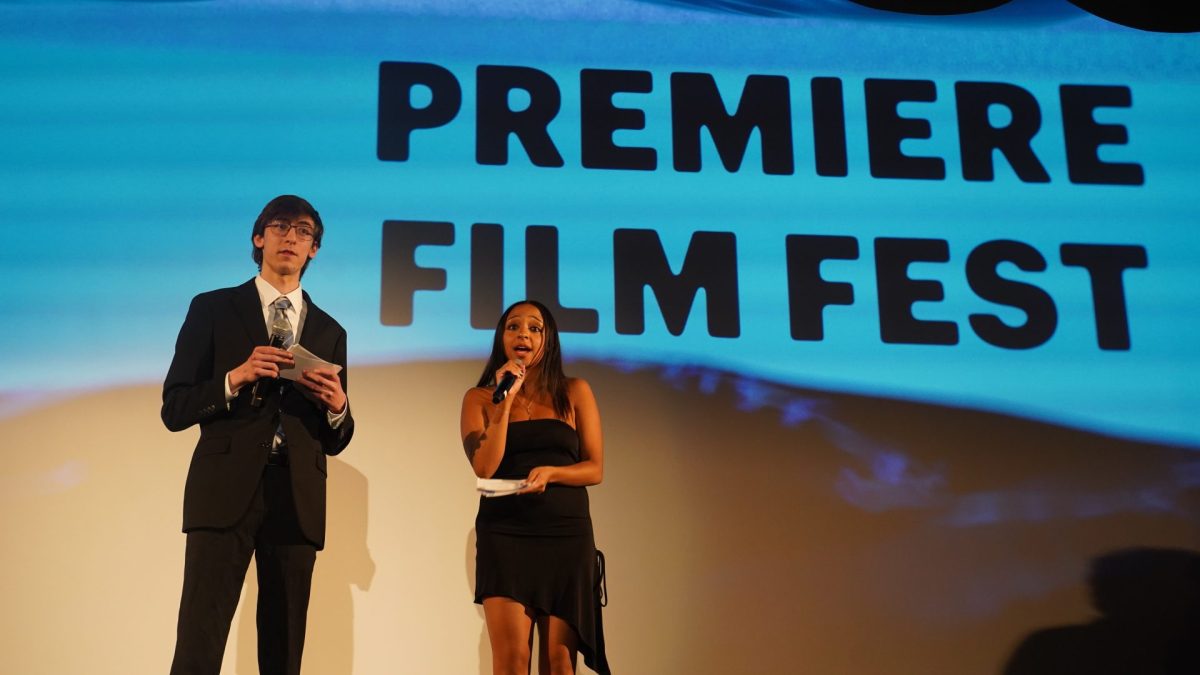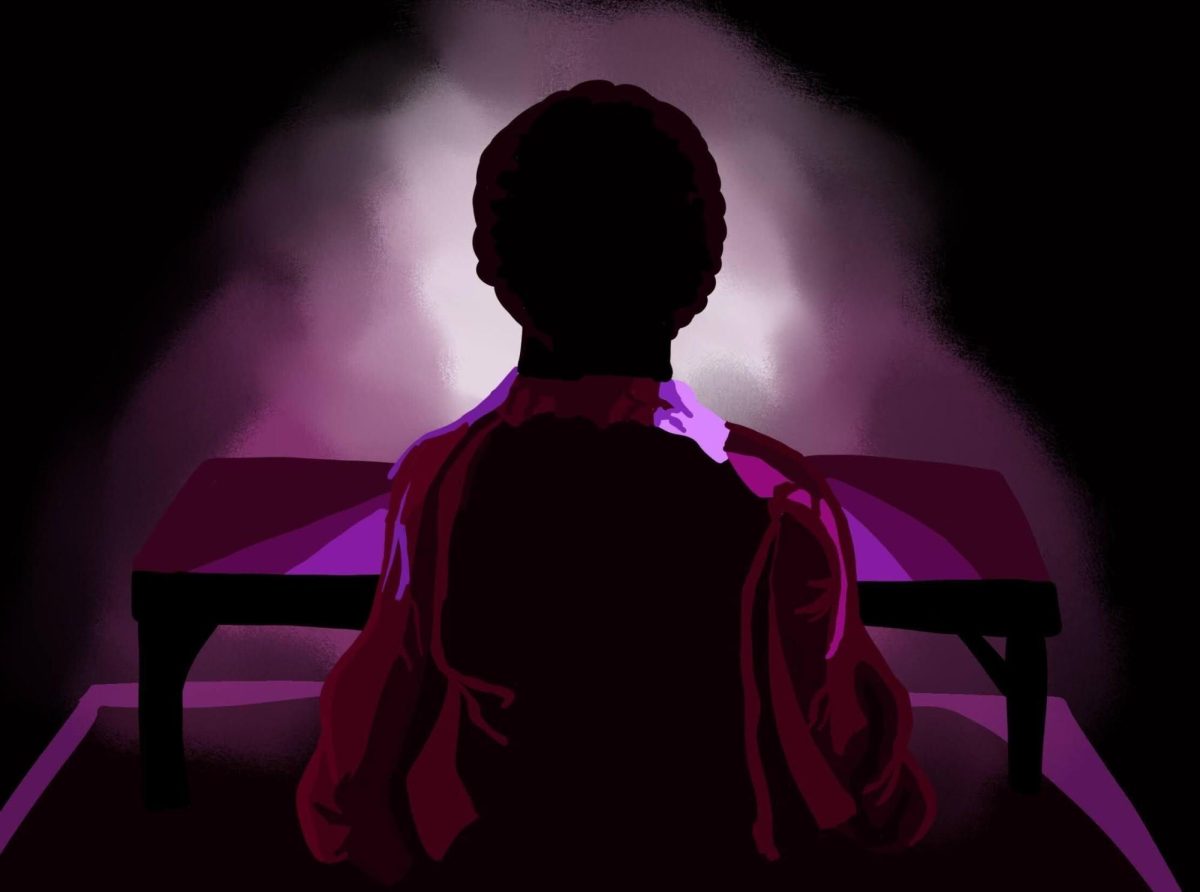“Civil War” is a beautifully grotesque war movie that reframes the political and violent implications of its storytelling toward journalists. In Alex Garland’s latest A24 blockbuster, he set out to make a film where “journalists are the heroes.” While it would be terribly egotistical of me to say he is correct in this proclamation, especially since the form of war photojournalism he depicts in the film is not at all my hopeful career path, the way he portrays that sentiment is deeply convincing. In “Civil War,” the pitfalls and power of journalism are proudly displayed for discussion — if not avid debate.
“Civil War” premiered April 12 and depicts a dystopian American future where the country is experiencing yet another civil war. A bit on the nose with that title, right? Instead of showing the conflict from a soldier or politician’s perspective, though, we follow a group of journalists as they cross war zones and face political unrest. Whether they’re pursuing an interview with the president or trying to get the perfect war photo, each press member is fighting for an ambiguously defined democracy amid our country’s polarization.
For those who critique the film’s apolitical messaging as a muddled addition to the plot, you missed the point. The first thing you’re taught in any journalism class, including the ones I’ve taken at DePaul, is that to be a journalist is to be unbiased. You may never take a side; you must report on both. You cannot express your support for either side of a conflict; to rally behind one party is to discredit your reputation as a member of the press. You must always report only the facts; preference and emotion get in the way of accurate reporting. The perfect journalist is one who can do their job without the barriers of bias or beliefs that would prevent them from writing an article that upholds American democracy. In “Civil War,” we see each character grapple with this existential sense of duty.
Lee (Kirsten Dunst) bottles up and represses her emotions, putting on a cold and callous stance until she reaches her breaking point. Joel (Wagner Moura) is an adrenaline junkie who reaches for substances whenever he is forced to face his solemn reality. Sammy (Stephen McKinley Henderson) is willing to challenge his own age if it means getting one step closer to the front lines.
Cailee Spaeny cements herself as a true star with her performance as Jessie. Her onscreen presence is so incredibly powerful that her character arc alone nearly twists the narrative into a morbid coming-of-age story. While tagging along with the other journalists on their way to Washington, D.C., she matures into her role as a confident and steadfast photojournalist. Even amid showers of bullets, sprays of blood and gory images of mass graves, over the 109-minute runtime we never see Jessie shy away from her duty. Conversely, Spaeny never shies away from the horrors of the role. Every time the camera is on her, there is an incredibly raw and visceral reaction to the events taking place around her. We see her plant her feet firmly in an industry and world that wants to discredit and destroy her very being.
The film, simply put, is brutal. Not only is it filled to the brim with graphic depictions of war and all the death that accompanies it, but the themes of trauma that stem from that storytelling craft an incredibly heavy narrative. The emotional complexity of the story shines in its moments of silence, allowing the viewer to sit with the tragedy they’ve witnessed with no loud explosions or screaming dialogue to hide behind.
“Civil War” is not for the faint of heart or close-minded. Beyond its chilling performances and stomach-curdling violence, it is a story about the journalism industry and its place in the nation’s political polarization.
Related Stories:








